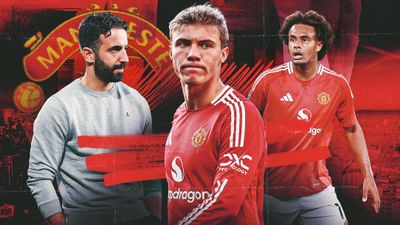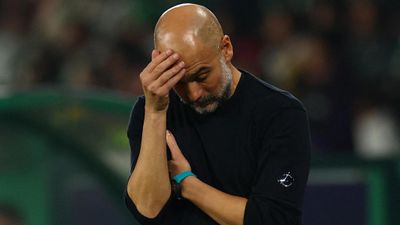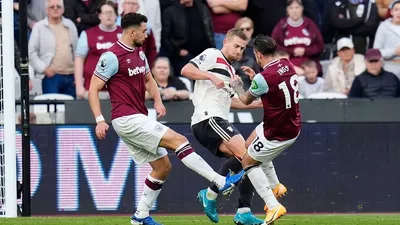Quick Betimate
Popular Leagues
-
UEFA Nations League
-
England (88)
- FA Cup
- Premier League (1)
- Championship (12)
- League 1 (2)
- League 2 (12)
- National League (12)
- National League North (1)
- National League South (1)
- EFL Trophy
- Premier League 2 (4)
- Championship Women (5)
- Derbyshire Senior Cup
- Development League 2 (16)
- FA Cup Women (1)
- FA Trophy (1)
- Isthmian Cup
- Isthmian Division One North
- Isthmian Division One South (2)
- Isthmian Premier Division (2)
- National League Cup
- Northern League Division One
- Northern Premier League (1)
- Reserve Matches
- Southern Premier League Central (2)
- Southern Premier League South (2)
- Super League Women (2)
- U21 Premier League Cup (2)
- Northern Ireland Championship
- Northern Ireland Championship Women (2)
- Northern Ireland Cup (1)
- Northern Ireland Intermediate Cup
- Northern Ireland League Cup Women
- Northern Ireland Premier
- Northern Ireland Premier Intermediate League
- Northern Ireland Premier League Women (4)
- Northern Ireland Reserve League
- Scotland Regional Cup
- Wales League Cup Women
-
UEFA Champions League (3)
-
UEFA Europa League (4)
-
Spain (216)
- La Liga (10)
- Segunda (11)
- Tercera Group 1 (1)
- Tercera Group 2 (9)
- Tercera Group 3 (9)
- Tercera Group 4 (1)
- Tercera Group 5 (9)
- Tercera Group 6 (9)
- Tercera Group 7 (9)
- Tercera Group 8 (9)
- Tercera Group 9 (9)
- Tercera Group 10 (8)
- Tercera Group 11 (1)
- Tercera Group 12 (9)
- Tercera Group 13 (9)
- Tercera Group 14 (1)
- Tercera Group 15 (9)
- Tercera Group 16 (9)
- Tercera Group 17 (9)
- Tercera Group 18 (9)
- Youth League
- Copa de Catalunya
- Copa del Rey
- Kings League - 40 mins play
- Primera Division RFEF Group 1 (10)
- Primera Division RFEF Group 2 (10)
- Primera Federacion Women
- Primera Women (1)
- Queens League - 40 mins play
- Regional Cup
- Regional League
- Segunda Division RFEF Group 1 (9)
- Segunda Division RFEF Group 2 (9)
- Segunda Division RFEF Group 3 (9)
- Segunda Division RFEF Group 4 (9)
- Segunda Division RFEF Group 5 (9)
- Segunda Federacion Women
- Tercera Federacion Women
-
USA (439)
-
Germany (149)
- Bundesliga I (9)
- Bundesliga II (9)
- DFB Pokal (1)
- Regionalliga Bayern (9)
- Regionalliga North (1)
- Regionalliga North East (9)
- Regionalliga South West (9)
- Regionalliga West (8)
- Oberliga Baden-Wuerttemberg (1)
- Oberliga Bayern North (9)
- Oberliga Bayern South (8)
- Oberliga Bremen (8)
- Oberliga Hamburg (1)
- Oberliga Hessen (10)
- Oberliga Mittelrhein (8)
- Oberliga Niederrhein (9)
- Oberliga Niedersachsen (2)
- Oberliga NOFV Nord (8)
- Oberliga NOFV Sud (1)
- Oberliga Rheinland-Pfalz/Saar (1)
- Oberliga Schleswig-Holstein (1)
- Oberliga Westfalen (1)
- 3. Liga (10)
- Bundesliga II Play-Offs
- Bundesliga II Women (7)
- Bundesliga Play-Offs
- Bundesliga U19 (1)
- Bundesliga Women (6)
- DFB Pokal Women (1)
- Regionalliga Play-Offs
- U19 Cup (1)
-
Italy (117)
- Serie A (10)
- Serie B (10)
- Serie C Group A
- Serie C Group B
- Serie C Group C
- Campionato Nazionale
- Campionato Primavera 1 (10)
- Campionato Primavera 2 (16)
- Serie D (56)
- Coppa Italia (1)
- Coppa Italia Women (1)
- Campionato Primavera 3
- Campionato Primavera 4
- Primavera Cup
- Serie A Women (4)
- Serie B Play-Offs
- Serie B Women
- Serie C Cup
- Serie C Play-Offs (9)
- U19 League Women
-
France (62)
-
Netherlands (37)
-
Scotland (28)
-
Australia A-League (6)
-
Japan J-League (10)
-
Japan J2-League (10)
-
Indonesia Liga 1 (9)
-
Denmark Superligaen (6)
-
Cyprus Division 1 (4)
-
Israel Premier League (7)
-
Colombia Primera A (1)
-
Esport (133)
Other Leagues
-
Albania (4)
-
Algeria (41)
-
Andorra (7)
-
Angola (8)
-
Argentina (89)
-
Armenia (11)
-
Aruba
-
Australia (156)
- A-League (6)
- A-League Women (4)
- Capital Territory NPL2 (4)
- Capital Territory NPL2 U23 League
- Capital Territory Premier League (4)
- Capital Territory Premier League Women
- Capital Territory Premier League Women Reserves
- Capital Territory U23 League
- Darwin Premier League (3)
- FFA Cup Qualifying
- New South Wales League 1 (8)
- New South Wales League 2 (7)
- New South Wales NPL Women (5)
- New South Wales NPL2 Women
- New South Wales Premier League (8)
- New South Wales U20 League (5)
- Northern NSW Division 1 (5)
- Northern NSW Premier League (6)
- Northern NSW Premier League Women
- Northern NSW Reserves League
- NPL Queensland (6)
- NPL Queensland U23 (5)
- NPL Queensland Women (10)
- NPL Victoria (7)
- NPL Victoria U23
- NPL Victoria Women (6)
- NSW League 1 U20
- NSW League 2 U20
- Queensland PL 2 U23
- Queensland PL U23
- Queensland Premier League (6)
- Queensland Premier League 2 (6)
- Queensland Premier League 2 Women
- Queensland Premier League 3
- Queensland Premier League Women
- SA Premier League Reserves (1)
- SA Premier League Women (5)
- SA Premier League Women Reserves
- South Australia Premier League (6)
- South Australia State League 1 (6)
- South Australia State League Reserves
- Sunday League Premier Division
- Sunday League Premier Division Reserve
- Tasmania Championship (4)
- Tasmania Championship Women
- Tasmania NPL U21 League
- Tasmania Premier League (4)
- Tasmania South Division 1
- Tasmania Super League Women
- Victoria Cup Women
- Victoria PL 1 U23
- Victoria Premier League 1 (7)
- Victoria Premier League 2
- Victoria State League 1
- Victoria State League 1 Reserves
- Victoria State League 2
- WA Premier League Women
- WA Premier League Women U21
- WA State League 1 Reserves
- WA State League Reserves Cup
- Western Australia Premier League (6)
- Western Australia State League 1 (6)
- Western Australia State League 1 Women
- Western Australia State League 2
- Western Australia U23 League
- Australian Matches
-
Austria (60)
-
Azerbaijan (10)
-
Bahrain (6)
-
Bangladesh (7)
-
Barbados
-
Belarus (19)
-
Belgium (15)
-
Belize
-
Benin
-
Bhutan
-
Bolivia (11)
-
Bosnia & Herzegovina (24)
-
Botswana (8)
-
Brazil (218)
- Serie A (10)
- Serie B (10)
- Serie C (10)
- Amazonense
- Campeonato Alagoano
- Campeonato Amapaense (2)
- Campeonato Baiano 2 (5)
- Campeonato Brasileiro A2 Women (8)
- Campeonato Brasileiro Serie B U20 (8)
- Campeonato Capixaba
- Campeonato Carioca A2 (6)
- Campeonato Cearense B
- Campeonato Goiano
- Campeonato Goiano 2 (4)
- Campeonato Maranhense (4)
- Campeonato Matogrossense
- Campeonato Mineiro 2 (6)
- Campeonato Mineiro U20 (6)
- Campeonato Paraibano
- Campeonato Paranaense 2 (5)
- Campeonato Paulista A2
- Campeonato Paulista A3
- Campeonato Paulista A4
- Campeonato Paulista U20 (24)
- Campeonato Pernambucano
- Campeonato Rondoniense
- Campeonato Sul-Matogrossense
- Campeonato Tocantinense
- Campeonato U20 Women
- Copa Alagoas
- Copa Rio Women
- Copa Verde
- Matches (5)
- Matches Women
- Paraense (2)
- Paulista Serie B
- Paulista Women (4)
- Serie A U20 (10)
- Serie A1 Women (8)
- Serie A2 Women
- Serie A3 Women
- Serie D (32)
- U20 Cup
- U20 League (22)
- U20 Women Cup
- Campeonato Roraimense
- Copa do Brasil (27)
- Women’s Friendly
-
Bulgaria (19)
-
Burkina Faso
-
Burundi (8)
-
Cambodia (5)
-
Cameroon (8)
-
Canada (6)
-
Chile (31)
-
China (45)
-
Colombia (4)
-
Congo - Brazzaville
-
Costa Rica (6)
-
Côte d’Ivoire
-
Croatia (21)
-
Cuba
-
Cyprus (8)
-
Czech Republic (93)
-
Denmark (54)
- Superligaen (6)
- Division 1 (6)
- Cup (4)
- U19 League
- Danish Womens 1.Division
- Danish Womens Elitedivisionen (3)
- 2 Division Women
- Cup Women
- Danmarksserien Promotion (10)
- Danmarksserien Relegation (10)
- Division 2 (6)
- Division 3 (6)
- Future Cup
- Play-Offs Women (3)
- Series Group 1
- Series Group 2
- Series Group 3
- Series Group 4
- Superligaen Play-Offs
- U21 League
-
Djibouti
-
Dominica (1)
-
Dominican Republic
-
Ecuador (18)
-
Egypt (11)
-
El Salvador (7)
-
Estonia (21)
-
Ethiopia (7)
-
Faroe Islands (12)
-
Fiji
-
Finland (129)
-
Gambia
-
Georgia (10)
-
Ghana (11)
-
Gibraltar (3)
-
Greece (27)
-
Guatemala (8)
-
Haiti
-
Honduras (10)
-
Hong Kong SAR China (11)
-
Hungary (21)
-
Iceland (49)
-
India (2)
-
Indonesia (11)
-
Iran (14)
-
Iraq (10)
-
Ireland (25)
- Republic of Ireland FAI Cup (3)
- Republic of Ireland FAI Intermediate Cup
- Republic of Ireland First Division (5)
- Republic of Ireland Leinster Senior Cup
- Republic of Ireland Leinster Senior League (4)
- Republic of Ireland Munster Senior Cup
- Republic of Ireland Munster Senior League (2)
- Republic of Ireland National League Women (6)
- Republic of Ireland Premier Division (5)
- Republic of Ireland U20 League
-
Israel (13)
-
Jamaica (7)
-
Japan (57)
-
Jordan (8)
-
Kazakhstan (18)
-
Kenya (12)
-
Kuwait (8)
-
Kyrgyzstan
-
Latvia (10)
-
Lebanon (4)
-
Liberia
-
Liechtenstein (1)
-
Lithuania (28)
-
Luxembourg (18)
-
Macau SAR China (2)
-
Macedonia (15)
-
Malawi (4)
-
Malaysia
-
Mali
-
Malta (6)
-
Mauritania
-
Mexico (18)
-
Moldova (6)
-
Mongolia
-
Montenegro (9)
-
Morocco (9)
-
Mozambique
-
Myanmar (Burma)
-
Namibia
-
Nepal (2)
-
New Zealand (16)
-
Nicaragua (5)
-
Niger (2)
-
Nigeria (10)
-
Norway (104)
- Eliteserien (2)
- Division 1 (8)
- Cup (16)
- Cup Women (11)
- Division 1 Play-Offs
- Division 1 Women (6)
- Division 2 Group 1 (7)
- Division 2 Group 2 (7)
- Division 2 Group 3
- Division 3 Group 1 (7)
- Division 3 Group 2 (7)
- Division 3 Group 3 (7)
- Division 3 Group 4 (7)
- Division 3 Group 5 (7)
- Division 3 Group 6 (7)
- Interkretsserie U19
- Toppserien Women (5)
- U19 Elite League
- Youth Cup
-
Oman (6)
-
Panama (7)
-
Paraguay (20)
-
Peru (13)
-
Philippines (1)
-
Poland (60)
-
Portugal (27)
-
Puerto Rico
-
Qatar (14)
-
Romania (65)
-
Russia (62)
-
Rwanda (13)
-
Saint Kitts and Nevis
-
San Marino (3)
-
Saudi Arabia (13)
-
Senegal
-
Serbia (18)
-
Seychelles
-
Sierra Leone
-
Singapore (7)
-
Slovakia (33)
-
Slovenia (10)
-
Solomon Islands
-
South Africa (11)
-
South Korea (32)
-
Suriname
-
Sweden (98)
- Europe Friendlies
- Allsvenskan Qualification
- Superettan Qualification
- 1.div Norra (8)
- 1.div Södra (8)
- 2.div Norra Götaland (7)
- 2.div Norra Svealand (7)
- 2.div Norrland (7)
- 2.div Södra Götaland (7)
- 2.div Södra Svealand (7)
- 2.div Västra Götaland (7)
- Allsvenskan (8)
- Cup Women (2)
- Damallsvenskan (8)
- Elitettan (7)
- Juniorallsvenskan (7)
- Superettan (8)
-
Switzerland (32)
-
Taiwan
-
Tajikistan
-
Tanzania (3)
-
Thailand (5)
-
Togo
-
Trinidad and Tobago (6)
-
Tunisia (22)
-
Turkey (52)
-
Uganda (1)
-
Ukraine (25)
-
United Arab Emirates (9)
-
Uruguay (8)
-
Uzbekistan (11)
-
Venezuela
-
Vietnam (13)
-
Wales (1)
-
Zambia (9)
-
Zimbabwe (2)
Football’s Paternity Leave Problem: Players Caught in the Crossfire

When Erling Haaland ended a four-game goal drought against Leicester last year, Pep Guardiola offered an unexpected explanation for the striker’s fluctuating form—sharing major personal news.
"He's tired, he's played a lot of minutes. He's become a father for the first time in the last few days," the Manchester City manager revealed. "A lot of emotions and an exciting few days for him."
Anyone who has experienced the whirlwind of welcoming a newborn would have instantly sympathized with Haaland. On one hand, Guardiola’s comments put discussions about the striker’s form into perspective. But they also raised a deeper question: should Haaland have been playing so soon after such a life-changing event?
In the UK, every father is legally entitled to at least two weeks of paternity leave. Yet, in football, almost no one takes it. Those who attempt to carve out meaningful time to support their newborn and partner often face criticism.
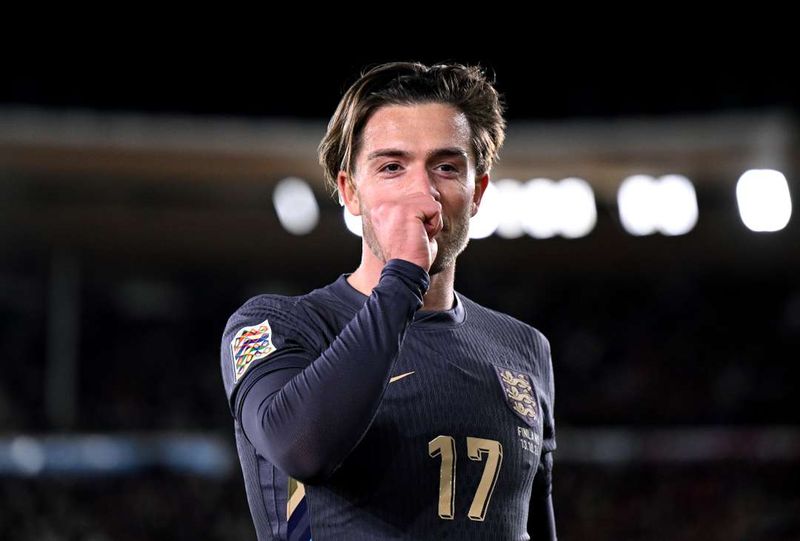
'Massive deal for player and partner'
Haaland is far from the only footballer expected to continue playing at the highest level immediately after becoming a father. His Manchester City teammate Phil Foden briefly left England’s Euro 2024 camp on June 26 for the birth of his third child. Initially, England described his absence as due to "a pressing family matter." But just a day later, he rejoined the squad, resumed training, and was back in the starting lineup for the last-16 clash against Slovakia on June 30.
Jack Grealish faced a similar situation. His daughter was born on September 27, yet he was named in the starting XI for Manchester City’s early kick-off at Newcastle just 24 hours later. Remarkably, Grealish played well, providing the assist for Josko Gvardiol’s goal in the 1-1 draw—an incredible feat given the life-changing event he and his long-term partner, Sasha Attwood, had just experienced.
"I can't think of a bigger experience in life for men than becoming a father, especially for the first time," Jeremy Davies of the Fatherhood Institute told GOAL. "It’s a massive deal—not just for them, but also for their partner, who has just gone through an amazing, scary, painful, and potentially risky experience of pregnancy and childbirth. Expecting men to go through that and remain entirely focused on work seems totally unreasonable."
The Professional Footballers' Association acknowledges the issue, stating: "The decision to take paternity leave will vary from player to player depending on their unique personal circumstances. However, it is important for players to know that they have a statutory right to take a period of paid paternity leave if they wish to do so."
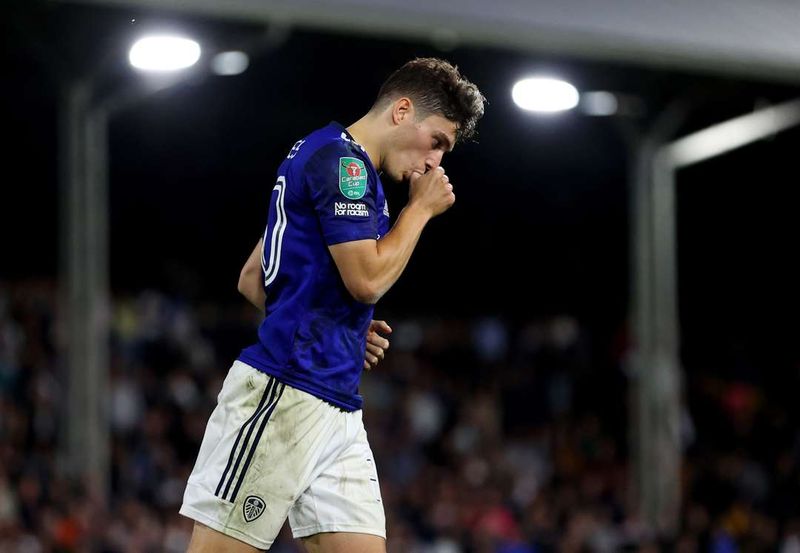
A 'crazy decision' and a helicopter
The reality for footballers is often a whirlwind of rushing from hospital beds to stadiums, balancing the overwhelming emotions of welcoming a new life with the demands of top-level competition. Last year, Sammie Szmodics’ wife gave birth at 11:15 a.m. after going into labor at 2 a.m. By 3 p.m., he was on the pitch at Ewood Park, playing for Blackburn against Norwich.
"I’d had about three hours' kip, but luckily the baby arrived happy and healthy," the now-Ipswich Town forward recalled. "After it had calmed down, your emotions are through the roof. On the way from the hospital to the game, I remember ringing my agent and him laughing. Looking back, it was a crazy decision. The first couple of minutes of the match, I was sprinting and realized I was running on pure adrenaline—I was absolutely exhausted."
Of course he was. At least his journey was relatively short compared to Leeds United winger Daniel James, who in 2021 was flown by helicopter from a Manchester hospital to Craven Cottage so he could play for Leeds in a Carabao Cup tie against Fulham just hours after his wife had given birth to their son.
Fatherhood Institute’s Jeremy Davies understands why players might hesitate to take paternity leave during a critical part of the season or a major tournament. But he believes clubs should encourage players to take it later if needed.
"I can see from an individual footballer’s point of view that the timing of a baby’s arrival could feel like the worst possible moment," he says. "If there’s an important match, take the paternity leave after the game. The law allows fathers to take their leave anytime up to 56 days after the birth. Between them, the mother, father, and club should find a way to make it work."
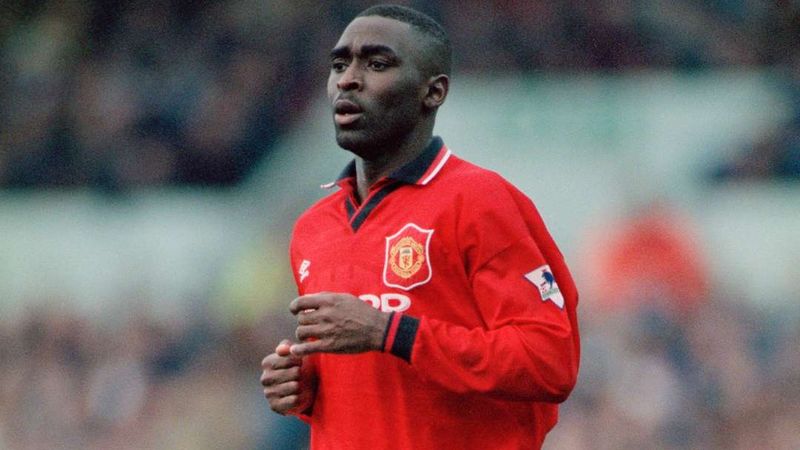
Foster's anger, Cole's torment
The reality for footballers is often a whirlwind of rushing from hospital beds to stadiums, balancing the overwhelming emotions of welcoming a new life with the demands of top-level competition. Last year, Sammie Szmodics’ wife gave birth at 11:15 a.m. after going into labor at 2 a.m. By 3 p.m., he was on the pitch at Ewood Park, playing for Blackburn against Norwich.
"I’d had about three hours' kip, but luckily the baby arrived happy and healthy," the now-Ipswich Town forward recalled. "After it had calmed down, your emotions are through the roof. On the way from the hospital to the game, I remember ringing my agent and him laughing. Looking back, it was a crazy decision. The first couple of minutes of the match, I was sprinting and realized I was running on pure adrenaline—I was absolutely exhausted."
Of course he was. At least his journey was relatively short compared to Leeds United winger Daniel James, who in 2021 was flown by helicopter from a Manchester hospital to Craven Cottage so he could play for Leeds in a Carabao Cup tie against Fulham just hours after his wife had given birth to their son.
Fatherhood Institute’s Jeremy Davies understands why players might hesitate to take paternity leave during a critical part of the season or a major tournament. But he believes clubs should encourage players to take it later if needed.
"I can see from an individual footballer’s point of view that the timing of a baby’s arrival could feel like the worst possible moment," he says. "If there’s an important match, take the paternity leave after the game. The law allows fathers to take their leave anytime up to 56 days after the birth. Between them, the mother, father, and club should find a way to make it work."
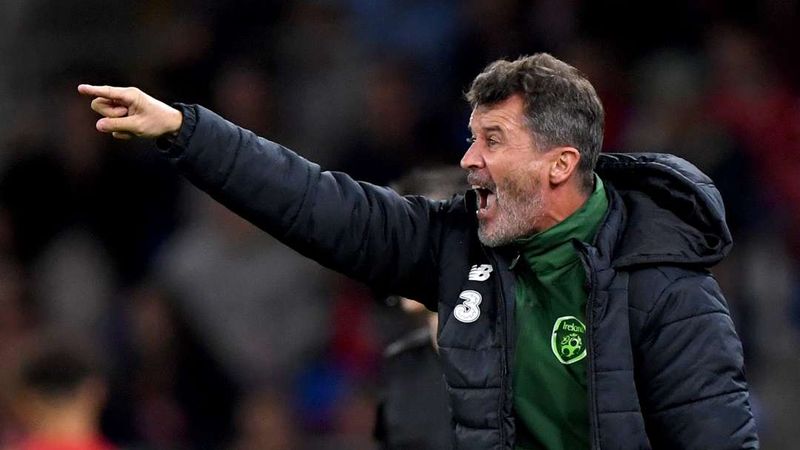
Keane: 'He didn't have the baby!'
Cole’s teammate Phil Neville was present for the birth of his two children, but his wife, Julie, later revealed that he left her in the delivery suite, still bleeding, to attend training. Speaking to the Manchester Evening News, she recalled: "I literally remember them (the hospital staff) going, 'Where’s Philip? Somebody ring him now, he needs to come now.' He says that’s the only time, probably, football maybe shouldn’t have come first."
That such incidents happened under Sir Alex Ferguson’s tenure isn’t entirely surprising. The legendary former Manchester United boss admitted in the 2021 documentary Never Give In that his wife, Cathy, had almost single-handedly raised their three sons while he remained consumed by football.
Ferguson’s captain, Roy Keane, shared a similarly dismissive view of paternity leave. While serving as Ireland’s assistant coach in 2015, Keane was asked if Robbie Keane would feature in a European Championship qualifier against Germany shortly after his wife had given birth in the United States. His blunt response: "Yeah, but he didn’t have the baby, did he? Unless he’s breastfeeding, he should be alright."
Attitudes beyond the UK haven’t been much different. Rafa Benitez was furious with Xabi Alonso in 2009 when the midfielder missed Liverpool’s Champions League clash against Inter Milan to be with his wife for the birth of their child. Alonso left Anfield that summer to join Real Madrid.
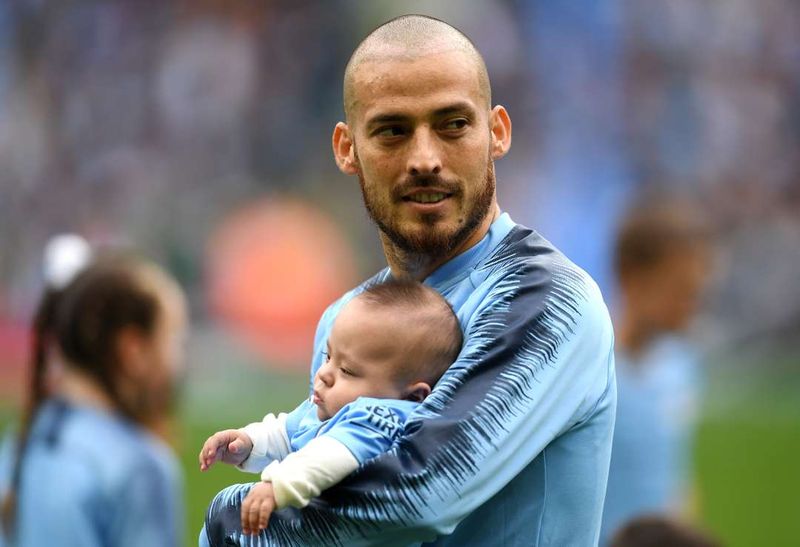
Silva 'forever in Guardiola's debt'
Last year, Villarreal striker Alexander Sørloth chose to play in a La Liga match against Almería rather than attend the birth of his child. Despite being given permission by both the club and his manager to miss the game, the Norwegian forward opted to stay with the team. His decision was capped off with a dramatic last-minute winner, which he celebrated in the traditional style—cradling his arms and sucking his thumb. Villarreal’s social media team framed the moment as a heartwarming story, concluding their post with: "Great story, huh?"
The reaction online, however, was far from unanimous praise. "No goal in his life will compensate for what he has missed. And on top of that, you say it like what he did was marvellous," one commenter wrote. Another added, "If I were his wife, he'd be sleeping in the dog house." The decision seemed particularly questionable given that Villarreal were mid-table at the time, with little at stake in terms of European qualification or relegation. Some speculated that Sørloth’s true motivation may have been the race for the Pichichi, awarded to La Liga’s top scorer. He ultimately finished just one goal behind Girona’s Artem Dovbyk.
In contrast, Gareth Southgate showed a more empathetic approach when he allowed Fabian Delph to miss England’s World Cup knockout clash with Colombia to be present for the birth of his third child. "Everybody says you only get one chance to be in a World Cup, but there’s also only one day in your life when your children are born," Southgate explained. "I know my father’s generation and those before them would view that differently, but you have got to be there for your family, and that’s very important."
Pep Guardiola set another example of compassionate leadership when he granted David Silva extended leave after the midfielder’s son, Mateo, was born prematurely in December 2017. Mateo spent the first five months of his life in a hospital in Valencia, and Guardiola made it clear that family came first. Silva recalled his manager’s words: "He said, ‘Listen, go and spend a few weeks with your family and do whatever you need to do. Please do it. I'm not going to put you in any problems. Look after your family first... football second.’"
Silva later expressed his deep gratitude, saying he would "be in debt forever" to Guardiola for his support. Manchester City, meanwhile, rallied behind their teammate, with Guardiola later revealing that Silva and his son were an inspiration as the team went on to secure a record-breaking 100 Premier League points that season.
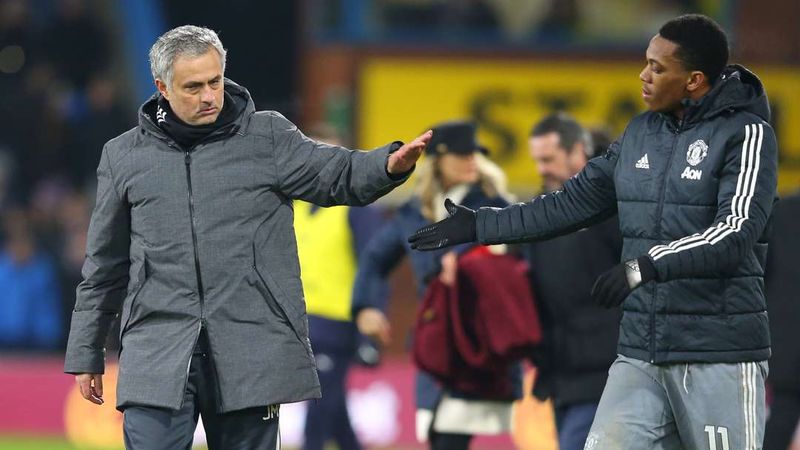
Mourinho hangs out Martial to dry
Silva endured more hardship than most fathers during that period, but every birth comes with its own challenges. Even after so-called natural deliveries, mothers are often left physically and emotionally impacted for weeks, if not months. More than one in ten women in the UK experience postnatal depression, while new fathers are also vulnerable to anxiety and depression during their first year of parenthood. In such moments, a footballer’s lucrative salary offers little comfort—what their partner truly needs is their presence and support, not for them to be constantly traveling for matches.
Yet, taking time off for family remains a battle in football. Just ask Anthony Martial, who found himself publicly criticized by José Mourinho in 2018 after delaying his return to Manchester United’s pre-season tour of the USA following the birth of his first son. Martial was later fined £180,000 ($223k)—the equivalent of two weeks' wages. Mourinho showed no sympathy, telling reporters: “He has the baby and after the baby is born—beautiful baby, full of health, thank God. Now he should be here, and he is not here.”
Martial stood his ground, responding on social media: “Thank you all for your posts. My little Swan is fine, for the mom it was harder but thanks to God she's better now. Sorry but my family will always come first... Back tomorrow in Manchester.”
For Jeremy Davies of the Fatherhood Institute, Martial’s punishment was “outrageous.” He argues that football clubs should be setting a better example: “Good employers in many industries have got their heads around this, and I’d have thought a high-quality football club in 2025 should be seeking to do the same. Otherwise, what are they saying? That they don’t care about these men’s mental health, their work-life balance, or their ability to form strong relationships with their children?”
He believes the responsibility lies with clubs to create a culture where footballers don’t have to choose between their careers and fatherhood. “On a practical level, it might feel like a struggle for an individual player to take time off when they need to, but the organisation that employs them should be doing everything it can to help them balance their incredible footballing talent with becoming a half-decent father.”
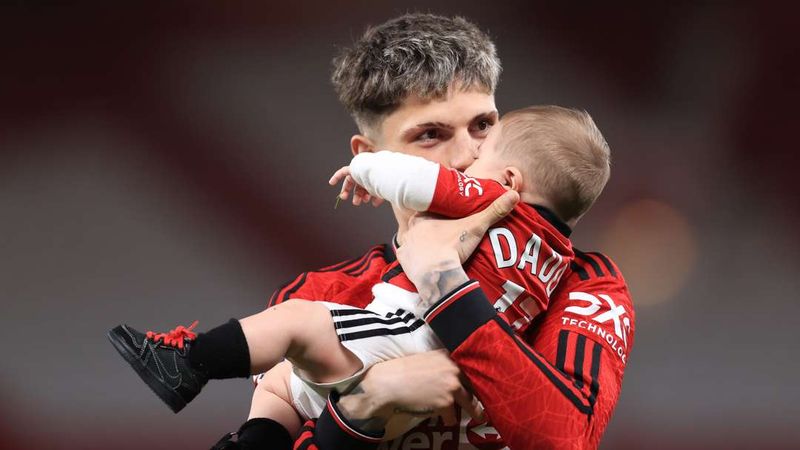
'You need to care about your players'
Football’s outdated approach to parental leave is evident in how recently maternity policies were introduced in the women’s game. FIFA only implemented paid maternity leave for female players in 2021, and further reforms were made last year to extend rights beyond biological mothers. These included eight weeks of paid leave for adoptive parents and non-birthing partners, marking a significant step forward after years of campaigning from FIFPRO, the global players’ union.
FIFPRO lawyer Alexandra Gomez Bruinewoud welcomed the changes but stressed that the men’s game must follow suit. “What is still missing? We believe all these protections regarding parental rights have been focused only on women’s players in FIFA’s regulations. Of course, men’s players also have the right to paternity leave, to have paid time off to be with their newborn child,” she said. “There is no clear justification for not including professional men’s footballers in these protections. And this should happen urgently.”
Despite this, there has been little momentum within the men’s game to enact change. Jeremy Davies argues that the issue is rooted in football’s rigid view of masculinity. “Football is an extreme example of this version of manhood—you're expected to be heroic, and looking after babies doesn’t seem to fit with that,” he says.
“But in this day and age, even in those heroic roles, surely we understand that masculinity is more wide-ranging? It involves softness, caring. You need to care about your teammates. You need to look after your health and mental well-being to perform at your best. It seems archaic to treat these men as if they’re gladiators in the Roman Empire.”

Related Content

